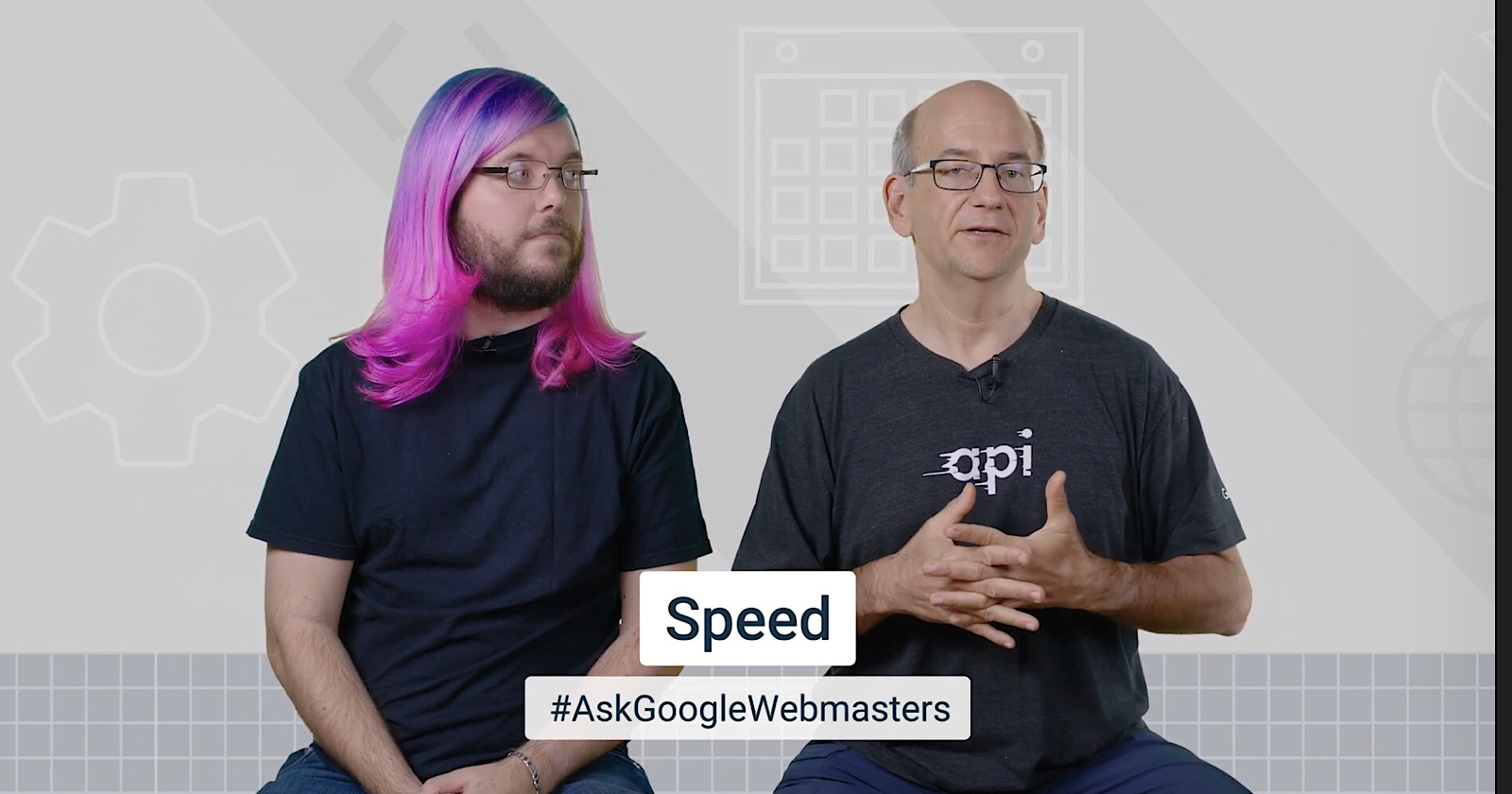Google’s John Mueller and Martin Splitt teamed up for a special edition of the ‘Ask Google Webmasters’ video series to answer questions about site speed.
Together, they each took turns answering a series of rather technical questions from SEOs – even some that appeared to go over Mueller’s head.
Here’s a quick recap of each question and answer.
Question 1: Ideal Page Speed
“What is the ideal page speed of any content for better ranking on SERP?”
When Google measures page speed for the purpose of ranking content it generally separates pages into two categories: really good or pretty bad. Splitt says there is not much of a threshold between those two extremes as far as Google’s algorithm is concerned.
Presumably that means there is no “ideal” speed. Just make sure pages are fast enough to fit into the “really good” category. Again, no specific measurements were given, but it helps to look at it from a visitor’s perspective and think about whether they would find your site fast or slow.
Question 2: Importance of Google PageSpeed Insights
“I wonder, if a website’s mobile speed using the Test My Site tool is good and GTmetrix report scores are high, how important are high Google PageSpeed Insights score for SEO?”
Mueller recommends using each of these different tools and looking at the data to discover low hanging fruit on your web pages. That refers to anything that could be easily improved to give pages a boost in speed. So look for the quick wins, in other words.
Splitt answers the question from the perspective of someone giving the report to a third-party – such as an SEO giving the report to a developer to make improvements.
Each of the tools in question measure slightly different things and present the results in different ways. So Splitt suggests being mindful of that and using the tool that’s best for your audience.
Question 3: Chrome DevTools
“I am testing an almost empty page on #devtools Audits (v5.1.0) it usually gives minimum results which 0.8ms for everything and 20ms for FID (First Input Delay) but sometimes it gives worse results in TTI (Time to Interactive), FCI (First CPU Idle) and FID. Same page, same code. Why?”
Splitt says these measurements aren’t always exact and there will always be some fluctuation between them. Even a fluctuation between 0.8ms and 20ms is not considered unusual, and Splitt notes that it takes roughly 20ms for a single frame to draw.
With that in mind, try not to get too hung up on numbers unless you see something wildly out of the ordinary. If you start seeing measurements ranging from 20 seconds to 1 minute, for example, then it’s time to be concerned.
Question 4: Best Metrics to Analyze
“What is the best metric(s) to look at when deciding if page speed is “good” or not? Why / why not should we focus on metrics like FCP (First Contentful Paint) / FMP (First Meaningful Paint) instead of scores given by tools like PageSpeed Insight?”
Short answer – “it depends.”
The importance of these metrics vary according to what users are doing on your site. If users are just going to your site to read content, and not really interacting with anything, then FMP & FCP would be the more important metrics to look at.
On the other hand, if it’s an interactive web application where people are landing on the page and immediately interacting with things, then metrics like TTI & FCI would be the best ones to look at.
Splitt and Mueller both agree that page speed is more complicated than what can be conveyed by any single metric. They recommend looking at multiple sets of data and finding areas of improvement according to what’s most important for your audience.
See the full video below:





